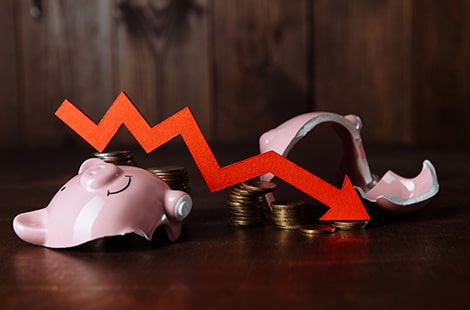The rise of counterfeit goods is a critical issue in the FMCG sector. In India alone, fake products account for roughly 30% of the market, amounting to an estimated INR 1 lakh crore (approximately USD 13 billion). Globally, counterfeit and pirated goods represent nearly 2.5% of global imports, equating to about half a trillion dollars. This widespread counterfeiting infringes on intellectual property rights, poses serious risks to consumer safety, and undermines brand integrity.
Counterfeit FMCG products often bypass the stringent safety protocols that legitimate items follow, containing harmful substances that can lead to severe health issues. Economically, the impact is significant, with legitimate businesses losing around 21.7% of their potential market share to counterfeiters, forcing them to spend heavily on protective measures.
The broader consequences of this illegal trade go beyond economic losses. Counterfeiting supports organized crime, leads to job losses, and erodes consumer trust. Governments also suffer from substantial tax revenue losses, affecting public services and infrastructure development. The complexity of global trade and the rise of e-commerce further complicate efforts to combat this illegal activity.
Efforts to address this issue include stronger regulatory measures, advanced technological solutions, and widespread consumer education. Innovations like artificial intelligence and product tracking technologies are being used to trace product origins and authenticate goods, enhancing transparency and consumer confidence. Additionally, awareness initiatives help educate the public about identifying genuine products and the risks posed by counterfeits.
Tackling the counterfeit challenge in the FMCG sector requires a multi-faceted approach involving all stakeholders. By enforcing stricter regulations, advancing technological innovation, and empowering consumers with knowledge, the integrity of the FMCG market can be protected, ensuring consumer safety and well-being.
Why is the FMCG Sector MOST vulnerable to Counterfeit Threats?
The FMCG sector, encompassing products from food and beverages to personal care items, is highly vulnerable to counterfeit threats. This vulnerability stems from the high demand and widespread use of these goods, making them prime targets for counterfeit operations. FMCG in the counterfeiting sector results in substantial economic losses and endangers consumer health and safety.
In the FMCG industry, counterfeit products can range from soaps and shampoos to edible oils, often replicated with alarming precision. These fake products typically bypass the rigorous safety and quality standards that legitimate items must adhere to, posing potential health hazards. Furthermore, the easy replication of packaging allows counterfeiters to deceive consumers effectively, damaging trust and loyalty towards established brands.
The scale of this issue is significant, with the counterfeit market in the FMCG sector growing by 44.4% annually. This growth is facilitated by the relative ease of producing counterfeit goods in small, unregulated setups, combined with advancements in technology that aid in the creation of convincing fake products.
Moreover, the global reach of the FMCG market, coupled with the complexities of supply chains and the burgeoning online marketplace, provides ample opportunities for counterfeiters to distribute their fake goods widely. The lack of stringent regulatory measures in certain regions further enhances the problem, allowing counterfeit operations to thrive and posing continuous challenges to authentic businesses and regulators alike.
Combating FMCG counterfeiting requires a multi-faceted approach, including stringent regulatory frameworks, advanced technological interventions, and comprehensive consumer education to identify and avoid counterfeit products. By understanding the extent and impact of counterfeiting within this sector, stakeholders can better strategize to protect both the economic interests of businesses and the well-being of consumers
The Socio-Economic impact of Counterfeits in FMCG Sector
Counterfeiting in the FMCG sector has a profound impact on public health, economic stability, and innovation. Intellectual property theft discourages foreign investment and hinders new advancements, both of which are essential for growth. Additionally, the production and distribution of counterfeit goods often involve exploitative labor practices in unsafe environments, leading to significant pollution.
For consumers, using counterfeit products that disregard safety regulations can result in serious health issues, eroding trust in product safety and damaging brand reputation. Counterfeit goods also diminish consumer confidence, reducing spending and contributing to economic declines in sectors that rely on consumer trust. Over time, these effects lead to a decrease in business motivation to innovate and invest in new developments.
The negative consequences of counterfeiting go beyond immediate financial losses. They harm economic development, violate human rights, and pose serious health risks. Stronger regulations, better enforcement, and increased consumer awareness are essential to tackling the widespread problem of counterfeits in the FMCG industry.
Is it enough to simply have a QR Code on the Packaging of FMCG Products?
QR codes have become a staple in FMCG packaging, initially used for inventory tracking and now pervasive across various applications including advertising and product authentication. However, the surge in their popularity has also sparked a rise in scams, exploiting the inherent security vulnerabilities of QR codes. The primary issue is the inability to verify the authenticity of a QR code before scanning, allowing scammers to replace genuine codes with fraudulent ones easily.
This security gap exposes consumers to phishing attacks and other scams, with studies showing that a significant majority of people cannot distinguish between real and fake QR codes. Given these vulnerabilities, relying solely on QR codes for product authentication is insufficient. QR codes can be easily duplicated or manipulated, undermining efforts to ensure product legitimacy.
To address these challenges, brands must enhance QR code security. This could involve integrating advanced and invisible security features or combining QR codes with other verification technologies like holograms. Incorporating services like Ennoventure’s brand protection can provide an additional layer of security, ensuring QR codes remain a reliable tool for safeguarding products. Securing QR codes is essential for both protecting consumers and preserving brand integrity and trust.
How Real-Time Analytics & Tracking can help the FMCG Sector?
In the fast-moving consumer goods (FMCG) sector, where products are diverse and market dynamics shift rapidly, real-time analytics and tracking are essential tools for combating counterfeiting and improving market responsiveness. These technologies offer FMCG companies valuable insights into operations, market trends, and consumer behavior, allowing for quick and informed decision-making.
Combating Counterfeiting with Real-Time Data
Counterfeit products pose a significant threat to both consumer safety and company revenues in the FMCG sector. The use of real-time analytics helps companies identify and track counterfeit activities more efficiently. For example, data analytics can monitor sales patterns and distribution channels to detect anomalies that may indicate the presence of counterfeit goods. This proactive approach allows companies to respond swiftly to potential threats, minimizing the economic impact and protecting consumer trust.
Enhancing Supply Chain Transparency
Real-time tracking technologies help FMCG companies maintain a transparent supply chain. By using RFID tags, NFC technology, and other tracking systems, companies can monitor their products from production to point of sale. However, these technologies come with challenges, including higher costs and logistical complexities for printing and transport. While they offer visibility, such limitations make them less efficient in some cases. By contrast, more advanced solutions ensure greater ease and effectiveness in preventing counterfeit infiltration. Additionally, improved tracking allows for better inventory management, reducing waste and optimizing supply chain operations.
Improving Consumer Engagement and Market Insight
Real-time analytics play a key role in enhancing consumer engagement. By analyzing consumer data, companies can identify purchasing trends, preferences, and behavior, allowing them to tailor marketing strategies to better meet consumer needs and strengthen relationships. Additionally, real-time insights enable companies to quickly adapt to changing market conditions, helping them stay competitive and relevant.
Driving Innovation and Future Growth
The integration of real-time analytics and tracking in FMCG operations facilitates continuous innovation and adaptation. Companies can use the insights gained from data to innovate product offerings and improve services. Furthermore, the ability to track and analyze market and consumer data in real-time supports companies in making strategic decisions that align with future trends and consumer expectations.
Security and Consumer Trust
Implementing advanced tracking and analytics enhances security across the supply chain, fostering greater consumer trust. Consumers are more likely to remain loyal to brands that they trust to provide high-quality, authentic products. In an era where brand loyalty is hard to maintain, ensuring product authenticity and engaging directly with consumers through data-driven insights can make a significant difference.
How Ennoventure empowers Brands to combat Counterfeit Products in FMCG Sector?
At Ennoventure, we are dedicated to empowering FMCG brands to effectively combat counterfeiting. Our innovative approach incorporates invisible cryptographic signatures into existing packaging, allowing brands to verify product authenticity effortlessly with our user-friendly mobile app. This secures the supply chain while bolstering consumer confidence by ensuring they purchase genuine products. Our technology thwarts counterfeiters and helps brands safeguard their reputation, enhancing customer loyalty by providing a reliable and seamless solution to the ongoing challenge of counterfeit products.



